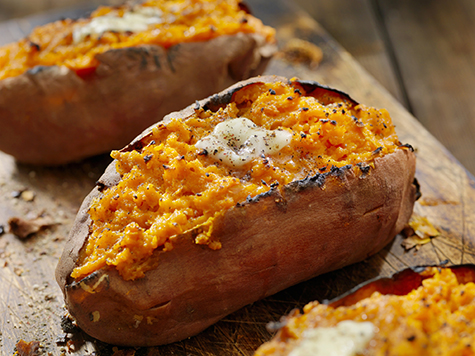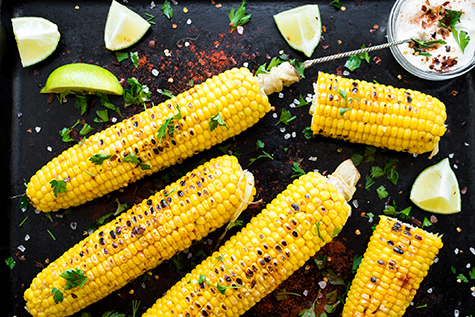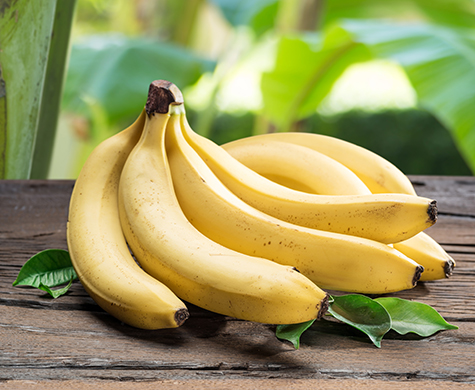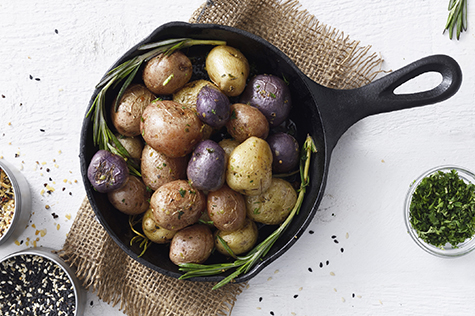5 Really GOOD Foods with Really Bad Raps

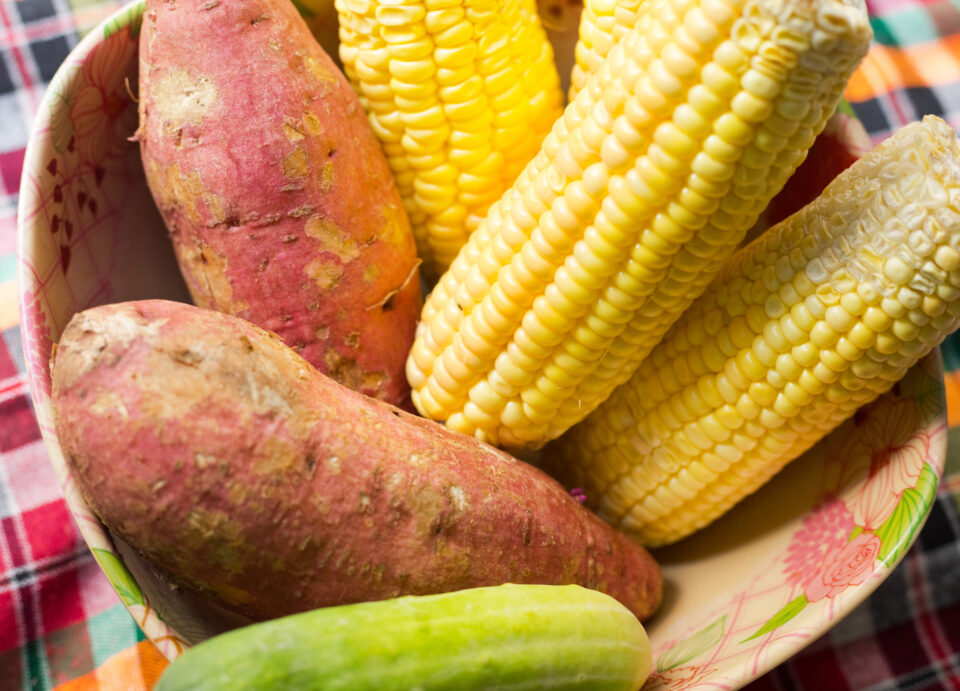
There are some foods out there deemed ‘bad’ that have gotten this label somewhat unfairly. Calling foods ‘good’ or ‘bad’ is also misleading – food is FOOD but some of it can support our health while others may hurt it if consumed in excess. Check out these 5 foods that have a bad reputation and see the FoodTrients discussion on how to incorporate them into any healthy diet!
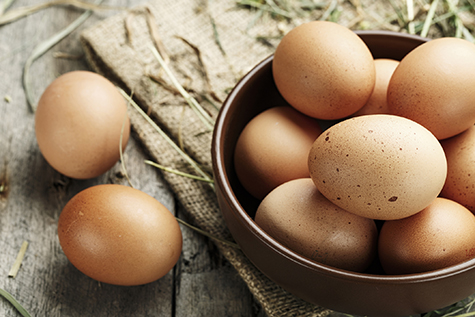 Eggs
Eggs
Research has undeniably changed on dietary fat and cholesterol in recent years, finding that fat and even cholesterol that we consume may not have the adverse effects once thought. Eggs are rich in vitamins and minerals including selenium, biotin, B12, B2, B5, iodine, phosphorus, vitamins D and A . Eggs are a great source of healthy fats and protein, perfect for a snack or meal. Anti-aging choline is a micronutrient that aids nerve signaling and supports the nervous and muscular systems. It supports the liver and healthy transport of triglycerides. Choline doesn’t exist in many foods, but eggs are considered an excellent source! Eggs are a great vehicle for veggies so be sure to add spinach, broccoli, mushrooms and kale into your egg dishes for flavor, fiber and even more vitamins, minerals and antioxidants. Choosing organic, pasture raised eggs will help lower risk of low quality, non-vegetarian, or contaminated feed. Chickens who eat grass produce eggs with a better fat profile including higher omega-3 content.
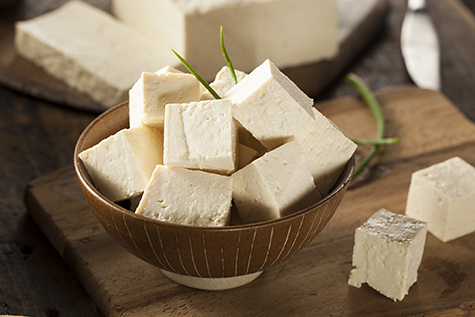 Soy/Tofu
Soy/Tofu
Unfortunately, some people including medical professionals continue to cite old research when it comes to soy and tofu. Women remain fearful of plant ‘estrogens’ also called ‘phytoestrogens’ causing breast cancer and men sometimes believe that eating these foods can cause feminizing effects. Old research from years ago based on animal studies aside, newer studies have proven that the naturally occurring phytoestrogens in soy (and in hundreds of other plants we eat) fit into human estrogen receptors but are unable to stimulate them like human or animal estrogens are able to. That’s right: plant estrogens support human health by taking up real estate in the body. Soy and tofu are excellent sources of protein, healthy fats, and minerals like molybdenum, copper, manganese, phosphorus and iron and should be included in the diet or both women and men. Aim for organic, unprocessed soy products like tofu, tempeh, edamame beans or miso rather than more processed forms of soy.
Corn
Folks avoid corn for a variety of reasons including the starch/sugar content, the fact it is a highly genetically modified crop, or because they think it contains no nutritional value. Corn comes in many colors and varieties and is full of antioxidant carotenoids like lutein and zeaxanthin which support healthy aging of the eyes. Corn is also high in fiber and is high in pantothenic acid, phosphorus, vitamins B3 and B6. Considered a whole grain, corn can be incorporated into the diet in a healthy way. Shoot for organic corn because some varieties tested by the Environmental Working Group have come up with pesticide residues. Try colorful local corn when it is in season to maximize antioxidant content – whenever you see bright colors, you can think ‘health!’. Include whole, unprocessed corn instead of corn-based food products like chips and other snack foods.
Bananas
Many people avoid bananas because they have “too much sugar.” This tropical fruit is one of nature’s best portable snack foods and contains high levels of fiber, vitamin B6, vitamin C, potassium, and manganese. Bananas commonly contain 14-15 grams of naturally occurring sugar but also have 3 grams of fiber, including pectins, and the high water content common in fruits and vegetables. Because of these unique properties, bananas help regulate healthy digestion and serve as a prebiotic source for optimal gut health. There is no need to avoid bananas in the diet, but one a day is generally appropriate. Enjoy bananas on their own as a snack or incorporated frozen into a smoothie or fruit-based dessert. You can peel bananas, wrap them in plastic and freeze them to use for later, especially as they get too ripe to eat.
Potatoes/Sweet Potatoes
Like other starchy veggies, people sometimes avoid potatoes because of their high carbohydrate content. But skipping on potatoes means missing out on a delicious and nutritious natural food. Potatoes are high in vitamins B6 and C, and minerals like potassium, copper, and phosphorus. They are also high in fiber – one medium baked potato contains 100 calories and 4 grams of fiber. The starch in potatoes is rapidly absorbed and easily digested; that is true. The glycemic index of a white potato is high at 111, but the glycemic load is actually 33, according to the Harvard School of Public Health. Sweet potatoes contain high levels of beta-carotene and they have a lower glycemic index at 70 with a glycemic load of 22. The glycemic index indicates how fast the carbohydrate in a food will convert to blood sugar based on the food alone and load indicates absorption based on serving size or the amount that a person would actually eat; the higher the number, the higher the blood sugar. Potatoes are rarely eaten alone and are more often included in a meal with fat and protein sources which will help slow the rapid digestion that could occur if you ate a potato on it’s own. Potatoes can be served with a lot of added fat or oil (think sour cream on a baked potato, cheesy scalloped potatoes or French fries). They can also be served in a more natural way with fresh herbs and spices for flavor which compliments their healthy nature. Be sure to incorporate potatoes into your diet as one of many options of natural, healthy starchy vegetables.
Resources:
(http://www.whfoods.com/genpage.php/genpage.php?tname=foodspice&dbid=92)
http://www.whfoods.com/genpage.php?tname=foodspice&dbid=79) (http://www.cancer.org/cancer/news/expertvoices/post/2012/08/02/the-bottom-line-on-soy-and-breast-cancer-risk.aspx)
http://www.ewg.org/?gclid=Cj0KEQjwsb-vBRCLj7TvqpGx_MoBEiQALgFGnjHYsEwj0RntCOBJTtTwe0Z5B-_IQG8Y-EpfvkLDEocaAh9-8P8HAQ) (http://www.whfoods.com/genpage.php?tname=foodspice&dbid=90)
http://www.whfoods.com/genpage.php?tname=foodspice&dbid=7
Ginger Hultin, MS, RD, CSO, LDN, is a health writer and owner of Champagne Nutrition specializing in integrative health and whole food-based nutrition. She serves as Immediate Past President for the Chicago Academy of Nutrition and Dietetics, Chair-Elect of the Vegetarian Nutrition Dietetic Practice Group and is a Media Representative for the Illinois Academy. Read Ginger’s blog, Champagne Nutrition, and follow her on Facebook, Twitter, Instagram and Pinterest.
Ginger Hultin MS RD CSO LDN
gingerhultin@hotmail.com | @GingerHultinRD
Chair-Elect, Vegetarian Nutrition Dietetic Practice Group
ChampagneNutrition.com
